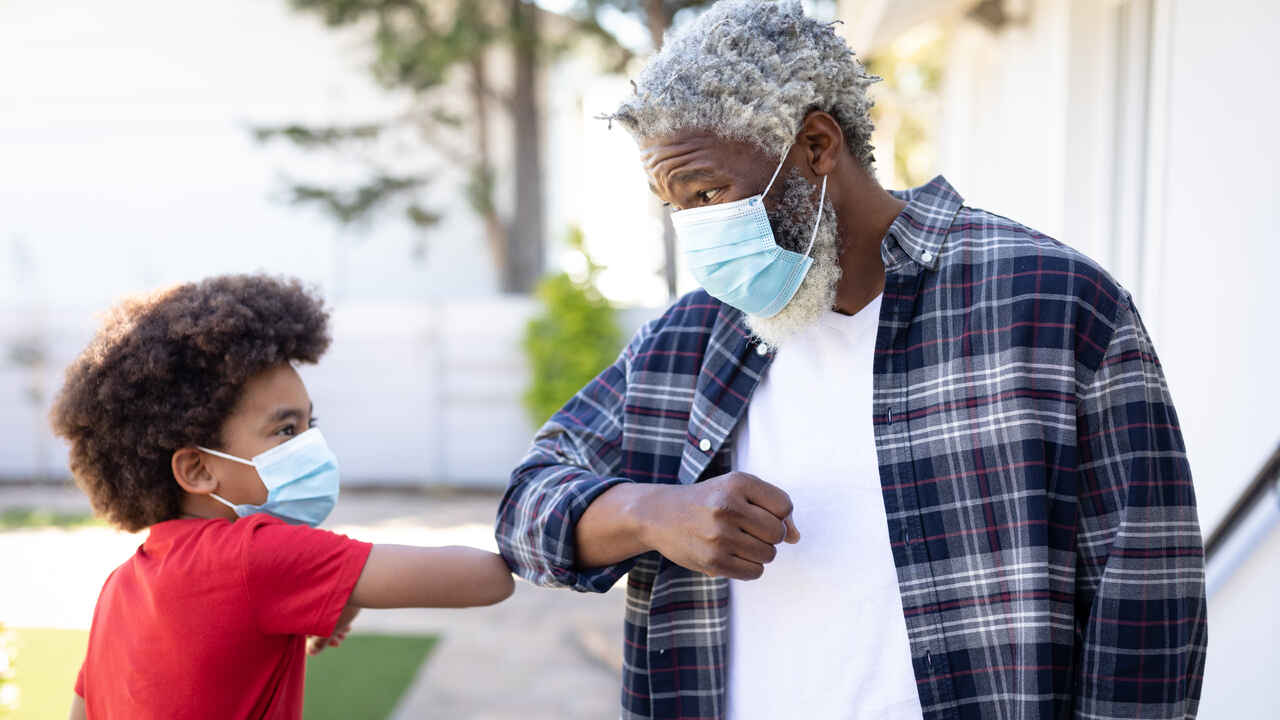 Here’s what you can – and can’t – do after getting your COVID vaccine.
Here’s what you can – and can’t – do after getting your COVID vaccine.
Now that you’ve gotten your COVID-19 vaccine, are you making plans to finally see your family and friends? If so, there are some important things to keep in mind.
Remember that your vaccine protects only you. Your family and friends who aren’t yet vaccinated are still at risk for COVID-19. You also need to wait until the vaccines take effect for you to be fully protected. That’s why it’s important that you continue to wear your mask and social distance.
Here, are answers to common questions about what to expect after getting vaccinated.
When will I be protected after getting the COVID-19 vaccine?
The vaccines currently available are given in two doses, three or four weeks apart. For the highest protection, you’ll need both doses. A few weeks after the second dose, you should have an approximately 95% chance of avoiding serious illness from COVID-19.
I’m vaccinated. Is it safe for me to be around people who haven’t been vaccinated?
Not necessarily. Even though the vaccines are very effective, a small percentage of people may still get sick. Also, it’s not yet known if the vaccines stop people from spreading the virus even if they have no symptoms. The safest way to spend time with people who don’t live with you is still by phone and video conferencing. Another option might be to meet outdoors while wearing masks and staying at least six feet apart.
Can anything be done to make indoor visits safer?
There’s no risk-free way to spend time indoors with people from other households until everyone is vaccinated. But with careful planning, you can reduce the risk. If you’re traveling, experts recommend quarantining for 14 days in the location where you plan to meet and getting tested. During your visit, wear masks, keep your distance, wash hands often and open windows or doors to let in fresh air.
When will it be safe to be around people from different households?
To put an end to the pandemic, we need to achieve herd immunity. This happens when enough people build up immunity that the virus struggles to spread. The exact percentage of the population that needs to become immune to COVID-19 is currently unknown, but experts say it may be as high as 70-90%. The vaccine is expected to become more widely available in the spring or summer, so hopefully most adults will be vaccinated by later this year (the vaccine is not yet approved for children under age, 16). In the meantime, continue to wear masks, social distance and wash hands often even if you’ve been vaccinated.
Copyright 2021 © Baldwin Publishing, Inc. All rights reserved.
Health eCooking® is a registered trademark of Baldwin Publishing, Inc. Cook eKitchen™ is a designated trademark of Baldwin Publishing, Inc. Any duplication or distribution of the information contained herein without the express approval of Baldwin Publishing, Inc. is strictly prohibited.
Date Last Reviewed: January 21, 2021
Editorial Review: Andrea Cohen, Editorial Director, Baldwin Publishing, Inc. Contact Editor
Medical Review: Perry Pitkow, MD
Learn more about Baldwin Publishing Inc. editorial policy, privacy policy, ADA compliance and sponsorship policy.
No information provided by Baldwin Publishing, Inc. in any article is a substitute for medical advice or treatment for any medical condition. Baldwin Publishing, Inc. strongly suggests that you use this information in consultation with your doctor or other health professional. Use or viewing of any Baldwin Publishing, Inc. article signifies your understanding and agreement to the disclaimer and acceptance of these terms of use.